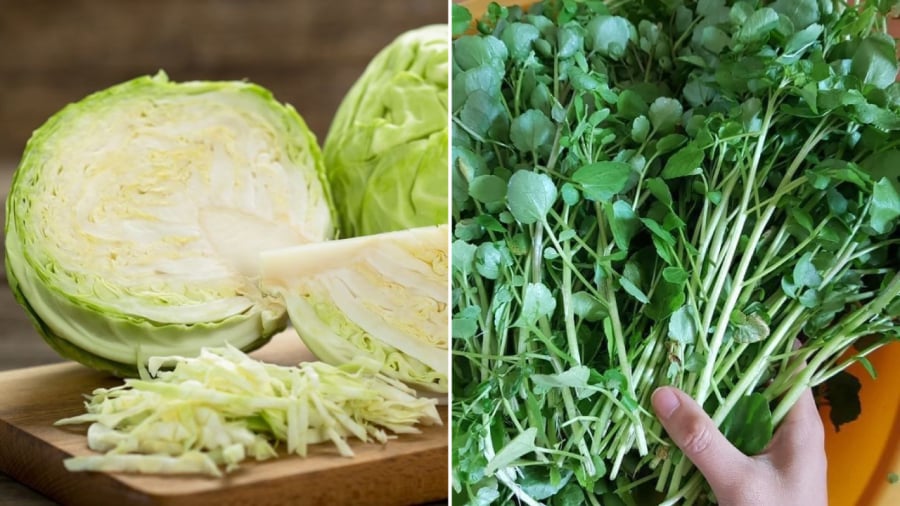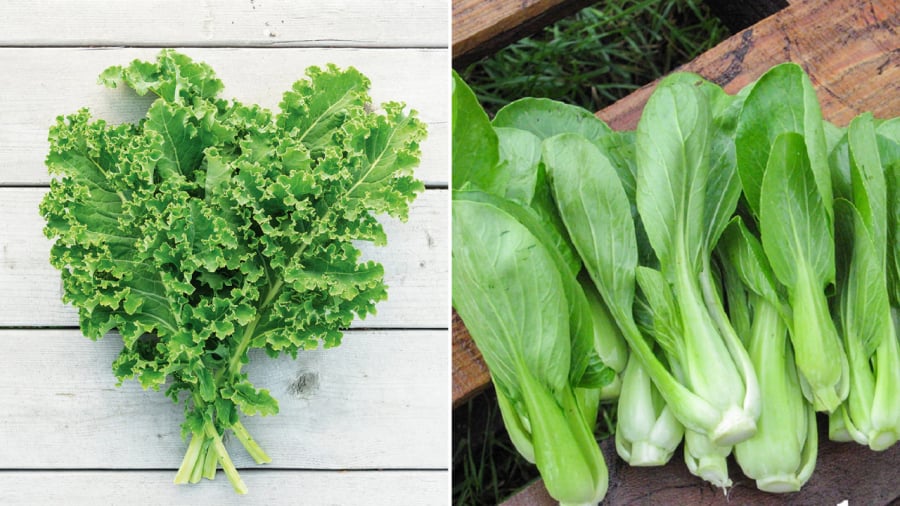Nutritional Value of Leafy Greens
Leafy greens offer a rich source of dietary fiber and an array of essential nutrients, including beta-carotene, lutein, zeaxanthin, vitamins C, E, K, and folate, as well as minerals.
They also contain sulfur-containing glucosinolates, which give them their distinctive pungent odor and bitter taste. During preparation, chewing, and digestion, glucosinolates break down into biologically active compounds such as isothiocyanates, thiocyanates, nitriles, and indoles. Among these, Indole-3-carbinol (an indole) and sulforaphane (an isothiocyanate) have been most extensively studied for their potential to combat malignant tumor cells. These compounds have been found to inhibit tumor growth in various parts of the body, including the breast, bladder, intestine, stomach, liver, and lungs.
As a result, regularly incorporating leafy greens into your diet may reduce the risk of developing four common types of cancer.
– Prostate Cancer: Several studies indicate that individuals who consume larger amounts of leafy greens have a lower risk of developing this type of cancer.
– Colorectal Cancer: A Dutch study on diet and cancer found that women who regularly ate leafy greens had a reduced risk of colorectal cancer.
– Lung Cancer: A study in the United States showed that women who consumed more than five servings of leafy greens per week had a decreased risk of lung cancer.
– Breast Cancer: Research suggests that women who regularly include leafy greens in their diet have a lower risk of developing breast cancer.
7 Leafy Greens That Are Natural Antibiotics and Tumor Fighters
Vegetables, in general, are a great source of dietary fiber, vitamins, and minerals, all of which contribute to overall health and well-being by boosting immunity and resistance. Greens, in particular, are an essential part of a daily diet. Leafy greens are affordable, versatile, and packed with benefits, including the potential to combat the formation and growth of malignant tumors.
- Cabbage
Cabbage is a familiar vegetable to many. It can be boiled, used in soups, wrapped around meat, stir-fried, pickled, or used as a filling. Cabbage provides an excellent source of fiber, vitamins, and minerals. Regular consumption of cabbage offers various benefits, such as improved vision, stronger bones, healthier skin, and a reduced risk of malignant tumors.
- Water Spinach
Water spinach is rich in fiber and powerful antioxidants like beta-carotene, lutein, and zeaxanthin. These nutrients help prevent eye diseases such as age-related macular degeneration and cataracts. Water spinach also aids in lowering bad cholesterol levels, benefiting cardiovascular health.

- Curly Endive
Curly endive is a fiber-rich vegetable with low calories and no fat. It aids in improving digestion and reducing bad cholesterol levels in the blood. Additionally, it contributes to stronger bones.
- Spoon Mustard
Spoon mustard (also known as chip siu) is a good source of fiber and protein, stimulating digestion and suppressing appetite, which aids in weight control and weight loss. It also contains folate, potassium, vitamins C, B6, E, and beta-carotene, which help prevent cardiovascular disease, promote healthy skin, and inhibit the formation and growth of malignant tumors.

- Broccoli
Broccoli (also known as green cauliflower) is packed with fiber, vitamins B, C, and K, and antioxidants that help regulate blood sugar levels and reduce inflammation. Additionally, broccoli contains bioactive compounds that slow down the aging process, prevent diseases, and protect brain health.
- Chrysanthemum Greens
Chrysanthemum greens are rich in fiber, protid, and vitamins A, B, and C, which help prevent sun damage and the formation of brown spots on the skin. They also reduce allergies and improve blood circulation. The chlorophyll in chrysanthemum greens helps eliminate excess cholesterol from the body.
- Rapini
Rapini is a highly nutritious vegetable. One hundred grams of rapini provides 45mg of vitamin C, meeting 75% of the body’s daily requirement. Vitamin C is crucial for overall health, boosting immunity, reducing inflammation, fighting infections, protecting cells from free radicals, and preventing diseases. Rapini is also rich in vitamin B6, which improves immunity and regulates blood sugar levels. Additionally, rapini is cholesterol-free, making it ideal for individuals with high blood pressure.





































